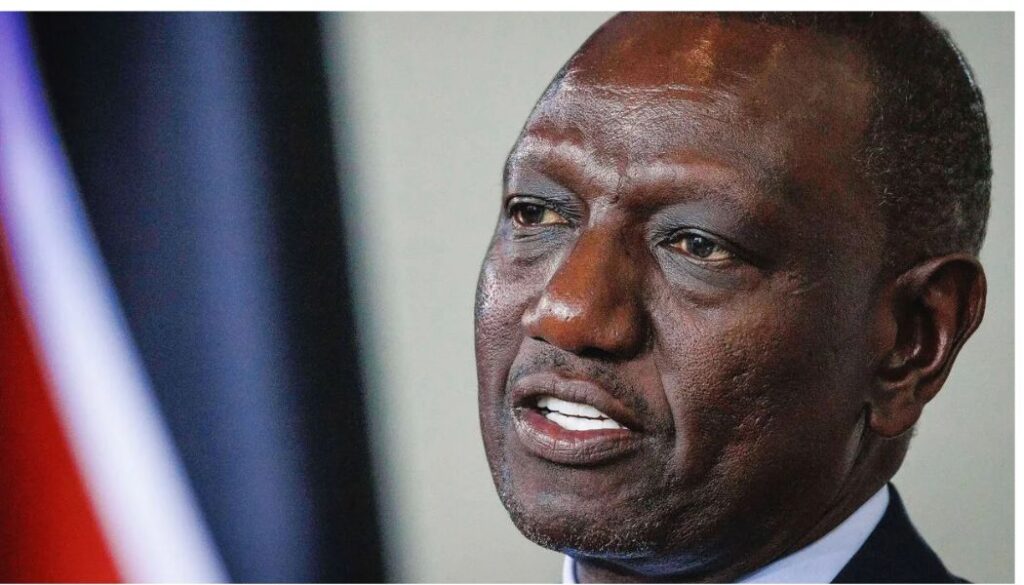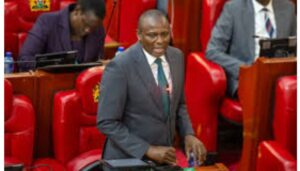State House slams UK Journal for claiming Ruto is ‘taking Kenya in a dangerous direction’

State House slams UK Journal for claiming Ruto is ‘taking Kenya in a dangerous direction’
State House spokesperson Hussein Mohamed has responded to an article published on The Economist that accused President William Ruto of steering the country in a dangerous direction.
In a letter addressed to the British media company, Mohamed defended Ruto’s leadership, citing reforms and social programs aimed at uplifting ordinary Kenyans.
“You claim that President William Ruto is leading Kenya to a ‘dangerous place’ (‘William Ruto’s wrong direction’, July 5th). President Ruto is in fact making the hard choices that others feared and reshaping Kenya’s future through bold, necessary reforms,” the statement read.
Mohamed noted that Ruto was elected on a platform of economic transformation and inclusion, with a promise to leave no Kenyan behind.
He added that for decades, the majority of Kenyans, particularly the poor, had been left out of the country’s development agenda.
“President Ruto was elected on a platform of economic transformation and inclusion, promising to leave no one behind. Since independence, the majority of Kenyans, especially the poor, have been underserved by government policies and development programmes.
State House went ahead to cite several key indicators showing significant recovery two years after Ruto took over power.
“Two years into his administration the Kenyan economy has shown remarkable resilience and recovery. Since August 2022, Kenya has recorded an average annual GDP growth rate of 5%, outperforming the global average of 3.3% and the regional average of 3.8%. The IMF recently projected Kenya’s GDP to reach $132bn, making it the largest economy in east and central Africa and the sixth-largest on the continent.
“Inflation, which stood at 9.6% in October 2022, fell sharply to 3.8% by May 2025, well below the Central Bank of Kenya’s 5% target, bringing relief to millions of households. The Kenyan shilling appreciated by nearly 20% against the dollar placing it among the best-performing currencies globally. The Central Bank rate has dropped from 13% a year ago to 9.75%, reducing borrowing costs and spurring private sector growth,” the statement further read.
Babu Owino will be Nairobi Governor in 2027; Jalang’o
Government deregisters 20 insurance brokerage companies
Mystery as CEO dies after alleged forced injection at home
Government developing mobile app to monitor civil servants; Public Service CS
EACC arrests 4 senior Treasury employees for collecting over Ksh.10M bribe
On social programs, Mohamed highlighted the launch of the Social Health Authority (SHA) as a milestone in fulfilling the promise of universal health care.
State House also challenged The Economist’s claim that global businesses were retreating from Kenya, calling it unfounded.
On concerns over the handling of the Gen Z protests, Mohamed insisted that Kenya remains a functioning democracy governed by law.
Notably, State House acknowledged the tragic loss of lives during the protests, including that of Albert Ojwang, and assured that investigations are ongoing.
Mohamed also took the opportunity to address The Economist’s claims that Ruto’s image was tainted and that he should not seek re-election in 2027.
“Last year’s Gen Z-led protests were sparked by a finance bill. President Ruto listened. He withdrew the bill. He also invited the youth to a national dialogue. Finally, what do you mean by saying President Ruto’s image is ‘tainted’ and he should not seek re-election? Shouldn’t the voters, not The Economist, make that decision at the next election?” the statement concluded.
Headteacher accused of defiling four school boys arrested
Prime suspect behind KNH ward murder arrested
Boda Boda Group demands immediate apology from Ruto’s advisor Makau Mutua
Former Karachuonyo MP Phoebe Asiyo dies at 93
Another patient found dead inside KNH hospital ward
Follow us






